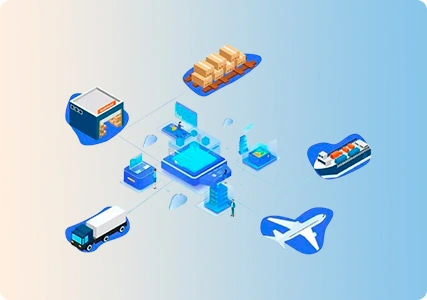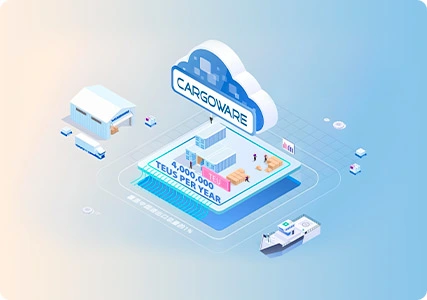The global economic growth is slowing down, and the external macroeconomic environment faces more significant uncertainty. In recent years, there have been substantial and dramatic changes in domestic and international situations, presenting more challenges to the international trade and cross-border e-commerce industries. From a longer-term perspective, the industrial internet wave is burgeoning and represents the greatest certainty amid these uncertainties. Therefore, more industry players are proactively preparing for the future by joining the digital transformation process, hitching a ride on this fast-moving train to seek high-quality development.
Global Import and Export Trade Facing Diverse Changes and Uncertainty:
As a major trading nation, China's import and export trade is changing the context of the "dual circulation" strategy. Over the long term, China's economy has experienced 40 years of high-speed growth since the era of reform and opening up, and it has now entered a new normal of stable growth, with the focus shifting from speed to quality. This transformation occurs in domestic demand and international trade and supply chains. Global monetary policies are tightening rapidly, and international economic recovery still faces challenges. Combined with political and economic impacts, international trade dynamics are becoming increasingly complex and volatile, with uncertainty and change being the prevailing themes. According to the World Trade Organization's forecast, the global commodity trade growth rate is expected to be only 1.7% in 2023, lower than the average growth rate of the past 12 years. Among G20 countries, only India, Saudi Arabia, Indonesia, Mexico, and Russia had July PMI figures above the 50-point threshold.
Aside from a few industries, such as new energy vehicles showing substantial growth this year, traditional labor-intensive goods foreign trade is declining. Overall, international trade and supply chain logistics have entered an era of competition based on existing resources. Many assets may face resource oversupply issues in the coming years, necessitating enhancing connectivity and operational efficiency through digitalization to enable surplus assets to find effective markets quickly.
Opportunities and Challenges for Modern Logistics as a Hub for International Trade:
Whether in maritime transport or international rail services, modern logistics transportation has dramatically driven the rapid development of global trade in recent decades. However, modern logistics companies must adapt as the industry is no longer rapidly growing and faces a competitive environment. Some visible opportunities can be seized, especially those related to digitalization and the industrial internet. From the industry development perspective, national policies encourage and support integrating the digital economy with the real economy. It is a consensus direction for transforming and upgrading many traditional industries.
Efficiency Enhancement Driven by Digitization, WallTech Empowers Modern Logistics:
Just as Ctrip transformed the domestic online travel agency (OTA) industry, allowing travelers to conveniently access information about hotel room availability and prices online anytime, the emergence of such services has brought about changes in business models, creating a mutually beneficial and symbiotic ecosystem for platforms, hotels, and travelers.
The traditional international logistics and supply chain industry also anticipates such transformation, linking logistics platforms and their upstream and downstream components establishing an industrial internet driven by digitalization to make operations more convenient and transparent. Simultaneously, transparent pricing and seamless integration with various requirements provide more convenience to numerous customers, saving time, effort, money, and worry.
WallTech (Shanghai WallTech Information Technology Co., Ltd.) was founded in 2011 and is a leading provider of cross-border logistics SaaS cloud service platform development and operational services in the industry. After nearly 12 years of steady growth, WallTech has built a cloud service product matrix based on two major platforms: CargoWare for international freight logistics and eTower for cross-border e-commerce logistics collaboration. WallTech tightly integrates advanced technology with the rich experience of the global logistics industry, empowering traditional Chinese international logistics companies to undergo digital transformation and upgrade, effectively improving operational efficiency and maximizing cost reduction for business operations.
Continuity of Digital Capabilities to Simplify International Trade:
While embarking on this journey, unprecedented risks and challenges will continue to emerge. This will be a long and enduring process that requires perseverance. Amid the tide of industrial internet, WallTech is clearly at the forefront.










